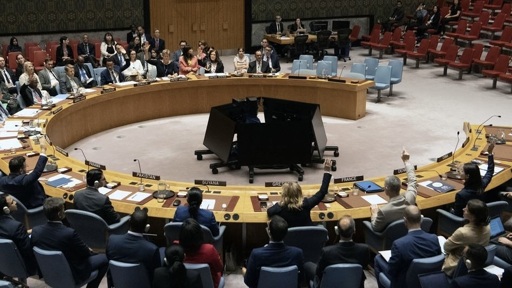Sanctions are a failed policy as far as its stated goals are concerned, and yet they are repeatedly used by the countries in the West to punish those who dare to carry out independent policies, claimed Venezuelan scholar and former diplomat Carlos Ron regarding the reimposition of international sanctions against Iran this Sunday.
“The sole purpose of sanctions, as stated numerous times by their architects, is to inflict pain or suffering onto the population in order to coerce governments into changing their behavior,” Ron underlines to Peoples Dispatch.
However, the implementation of sanctions rarely translates into governments giving up their direction under pressure, as we have seen in numerous cases.
A recent Lancet study established that sanctions killed five times more people between 2010 and 2021 than the wars and direct conflicts around the world.
“The impact [of sanctions] will be directly felt by the average Iranian family,” Ron predicts. This has already been the case, as Iranian people have been subjected to unilateral sanctions imposed by the US since 2018, when Donald Trump, during his first presidential term, decided to withdraw from the Iran nuclear deal and launch the so-called “maximum pressure campaign”.
The US sanctions have impacted Iran’s economy, particularly its health sector, where Iranian people are unable to access rare medicines. The Iranian currency plummeted to a record of over one million Rials to one American dollar even before the announcement of the international sanctions last week.
Trump withdrew from the Joint Comprehensive Plan of Action (JCPOA), or the nuclear deal, signed by his predecessor, Barack Obama, with Iran and five other countries, namely, the UK, France, Germany, China, and Russia in 2015, reportedly under Israeli pressure.
The JCPOA had allowed all international sanctions, imposed since 2006, to be removed in return for Iranian compliance to its conditions restricting its nuclear program. Many consider that Trump’s move ruined the chances of peace and normalcy in the region and particularly for Iran.
European countries have already started putting more new sanctions on Iran. On Wednesday, the UK froze assets and imposed financial restrictions on 121 individuals and entities, alleging them to be involved with the Iranian nuclear program. As such unilateral coercive measures intensify, the possibility of peace and stability in the region further deteriorates.
Sanctions hamper diplomacy
“Diplomacy, which requires respect for a country’s self-determination, is once again abandoned by the West,” in favor of punishing Iran, Ron argues, claiming sanctions have often failed to pressure governments to relent their positions.
Sanctions are “a failed policy when it comes to its stated goals. But it is a tool used for punishing those countries that dare to carry out its independent policies,” Ron emphasizes.
The reactions coming from various sections of the Iranian government so far establish Ron’s point. Iran has officially declared the UN sanctions “illegal” and manifested its refusal to abide by them and refusal to give in to the pressure.
Speaker of the Iranian parliament Mohammad Bagher Ghalibaf repeated the Iranian position on Sunday, maintaining that no country, including Iran, is bound to comply with them.
Ghalibaf questioned the snapback mechanism invoked by the European signatories of the JCPOA, claiming that two permanent members of the UN Security Council, Russia and China have also expressed their disagreements with the way the Europeans pushed for the sanctions.
Ghalibaf also warned Israel and the US of trying to make a move against Iran using these sanctions, claiming there would be serious repercussions if they do.
Israel and the US had launched attacks against Iran in June, claiming Iran violated the International Atomic Energy Agency (IAEA) safeguards and was building a nuclear bomb. Iran denied the allegations and its missiles bombarded several Israeli cities in retaliation.
Ghalibaf called for national unity and strong defense as the true deterrent to any future attack by Israel, claiming international sanctions did not stop it from resuming its attacks against Iran but what has stopped it is the fear of a heavier defeat than what it faced in June.
Further weakens the UN
“Unfortunately the UN is being blackmailed by its main contributor, the US, which leaves little room for any agency to fulfill their mandate properly,” indicated Ron, talking about the growing disenchantment with the one multilateral forum truly built to defend global peace and security.
The UN has failed to punish – let alone stop – Israel from carrying out it’s genocide in Gaza for the last two years. Every attempt to call for a ceasefire or push for the better delivery of humanitarian aid to the besieged Palestinian territory has been blocked by the US using its veto power. This has practically crippled the UN.
At a time when it is failing to curb Israeli war crimes and deliberate non-compliance to international laws, the UN accepted European countries’ call for snapback sanctions against Iran, which is a signatory of the NPT and has been a victim of Israeli and US invasion, against the principles of the UN Charter. This further raises questions about the UN’s legitimacy.
Noting that “the UN is necessary because international law is necessary to guarantee peace” around the world, Ron however, also accepts that it has been crippled by its most powerful member. He argues that “if the UN is not given the necessary tools to help nations in need then it fails to fulfill its purpose.”
Ron’s last point very much indicates the need for urgent reforms in the UN, which various countries in the global south, including Iran, have been demanding for years now.
The post Sanctions will harm Iranian people and hamper diplomatic channels, experts say appeared first on Peoples Dispatch.
From Peoples Dispatch via this RSS feed


